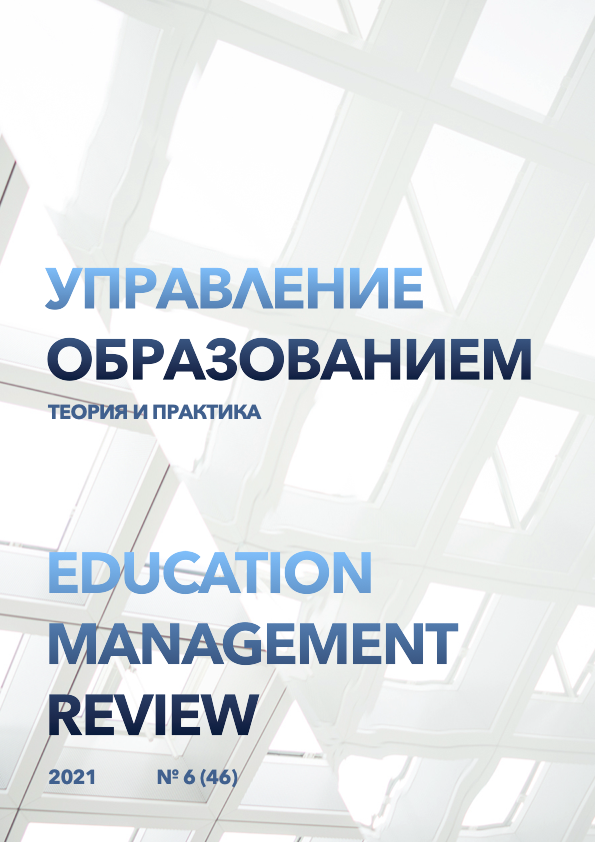Implementation of the principles of globalized learning in the processes of educating students
DOI:
https://doi.org/10.25726/m9376-4456-6688-nKeywords:
upbringing, patriotism, education, tolerance, traditionsAbstract
The process of globalization is actively developing in the world, which requires: systematic study of international experience in the development of various spheres of public life; leads to a growing interest in comparing socio-political systems and economic indicators, models of cultures of different countries and peoples, as well as education systems, which have become one of the most extensive spheres of human activity in our time. In Syria, Egypt, Saudi Arabia, education is at the stage of modernization, so the appeal to the experience of these countries is of great scientific and practical importance for their further development. In modern Syria, the main goal of the education of schoolchildren is the formation of a spiritually full-fledged, emotionally stable and tolerant personality of a citizen who is able to respect his people, their culture and traditions. The goals of education in Syria, Egypt, Saudi Arabia have a lot in common: ensuring access to education; taking into account national and regional peculiarities in the content of education; fostering patriotism and tolerance for the culture and traditions of different peoples. The comparison of the Syrian general education system with the education systems in Egypt and Saudi Arabia made it possible to determine the relevance of the research topic.
References
1st Workshop IFToMM for Sustainable Development Goals, I4SDG 2021. (2022). Mechanisms and Machine Science, 108 MMS.
Adams, E. C., Oduor, P., Wahome, A., & Tondapu, G. (2022). Reflections on two years teaching earth science at the women in science (Wisci) steam camp. Journal of Women and Minorities in Science and Engineering, 28(1), 23–40. https://doi.org/10.1615/JWomenMinorScienEng.2021033536
Bruce, R., Cavgias, A., Meloni, L., & Remígio, M. (2022). Under pressure: Women’s leadership during the COVID-19 crisis. Journal of Development Economics, 154. https://doi.org/10.1016/j.jdeveco.2021.102761
Carello, M. (2022). Innovative and Multidisciplinary Teaching to Design a Low Consumption Vehicle. Mechanisms and Machine Science, 108 MMS, 641–650. https://doi.org/10.1007/978-3-030-87383-7_69
Chuchulina, E. V, Kichenko, L., & Donovan, P. (2022). Smart Learning Technologies as a Factor of University Integration into the World Higher Education Market. Lecture Notes in Networks and Systems, 342 LNNS, 983–992. https://doi.org/10.1007/978-3-030-89477-1_89
Gamhewage, G., Mylonas, C., Mahmoud, M., & Stucke, O. (2022). Developing the first-ever global learning strategy to frame the future of learning for achieving public health goals. Journal of Oral Biology and Craniofacial Research, 12(1), 74–76. https://doi.org/10.1016/j.jobcr.2021.09.016
Hao, X., Peng, X., Ding, X., Qin, Y., Lv, M., Li, J., & Li, K. (2022). Application of digital education in undergraduate nursing and medical interns during the COVID-19 pandemic: A systematic review. Nurse Education Today, 108. https://doi.org/10.1016/j.nedt.2021.105183
Immonen, K., Tuomikoski, A.-M., Kääriäinen, M., Oikarinen, A., Holopainen, A., Kuivila, H., … Ylimäki, S. (2022). Evidence-based healthcare competence of social and healthcare educators: A systematic review of mixed methods. Nurse Education Today, 108. https://doi.org/10.1016/j.nedt.2021.105190
Jung, Y.-M., & Yoo, I.-Y. (2022). Career education needs of Korean nursing students and professionals: A cross-sectional survey. Nurse Education Today, 108. https://doi.org/10.1016/j.nedt.2021.105209
Mironenko, O., & Mironenko, E. (2022). Education Against Plastic Pollution: Current Approaches and Best Practices. Handbook of Environmental Chemistry, 112, 67–93. https://doi.org/10.1007/698_2020_486
Monesi, A., Imbriaco, G., Mazzoli, C. A., Giugni, A., & Ferrari, P. (2022). In-Situ Simulation for Intensive Care Nurses During the COVID-19 Pandemic in Italy: Advantages and Challenges. Clinical Simulation in Nursing, 62, 52–56. https://doi.org/10.1016/j.ecns.2021.10.005
Oliveira, L., Silva, P., Mesquita, A., Sa Sequeira, A., & Oliveira, A. (2022). Sadness, negativity, and uncertainty in education during COVID-19 on social media. International Journal of Online Pedagogy and Course Design, 12(1). https://doi.org/10.4018/IJOPCD.2022010103
Pezaro, S., Jenkins, M., & Bollard, M. (2022). Defining ‘research inspired teaching’ and introducing a research inspired online/offline teaching (riot) framework for fostering it using a co-creation approach. Nurse Education Today, 108. https://doi.org/10.1016/j.nedt.2021.105163
Polyakova, S., Grisenko, E., Frolovich, E., Syropyatova, N., Yakovleva, E., & Losavio, M. (2022). Russian and American Students’ Perceptions of the Teleconference Projects on Justice and Human Rights. Lecture Notes in Networks and Systems, 342 LNNS, 635–644. https://doi.org/10.1007/978-3-030-89477-1_61
Sandu, C., Takacs, E., Suaria, G., Borgogno, F., Laforsch, C., Löder, M. M. G. J., … Florea, L. (2022). Society Role in the Reduction of Plastic Pollution. Handbook of Environmental Chemistry, 112, 39–65. https://doi.org/10.1007/698_2020_483




